This 1989 Range Rover might only have 53,000 miles on its odometer, but it is fair to describe it as a well-traveled classic. After rolling off the line in Solihull, England, it commenced its active life plying the roads of France. It has since returned to its home country, but the seller provides all the shipping details and costs for potential buyers wishing to bring it to North America. The fact that it has received a healthy bid total suggests that people are willing to accept that invitation.
The Series I Land Rover was unerringly practical and utilitarian, which is why it was the vehicle of choice for many British farmers. Creature comforts didn’t extend far beyond seat padding and a heater, although the vehicle evolved during the following years. However, the company became aware of the emerging American trend for SUVs during the 1960s, with the release of the original Jeep Wagoneer the catalyst for the development of the Range Rover. It hit the market in 1970 and was an immediate success. Our feature vehicle left the factory in 1989, finding its way onto the streets of Paris, France. The seller holds documentation tracing its entire history from Day One, and while this probably adds little to the value, it allows this classic to tell an interesting backstory. It is a tidy survivor that presents extremely well in Eastnor Green. The paint retains a deep shine, the panels are straight, and there are no signs of abuse. The seller indicates that the story is equally positive below the surface, with this classic described as rust-free. The trim is in good order, and the glass is crystal clear.
Land Rover had traditionally utilized exceptionally flexible four-cylinder engines to power its various models, but the Range Rover was a game-changer for the company. It adopted a 3.5-liter V8 that gave the vehicle impressive performance credentials in almost any situation. This Rover’s fuel-injected powerplant sends 166hp and 206 ft/lbs of torque to the road via a desirable five-speed manual transmission and a dual-range transfer case. As befits a luxury off-roader, the new owner receives power assistance for the steering and brakes. The company may have aimed the original Range Rover at what it termed the “gentleman farmer,” but the vehicle’s ability to top 100mph made it an effective long-distance cruiser that became a staple for the British Royal Family. The seller confirms that this beauty is in excellent mechanical health. It runs and drives perfectly, the transmission shifts smoothly, and the four-wheel drive system works as it should. Potential buyers can consider it a turnkey proposition.
Range Rovers of this vintage often feature battered and tired interiors with plenty of cracked or broken plastic. This survivor has avoided those issues, suggesting it has always been treated respectfully. The seller indicates there is a seam repair on the driver’s seat’s outer edge. Otherwise, the cloth is free from significant wear, the carpet is surprisingly clean, and the dash hasn’t succumbed to UV exposure. It might not feature such luxuries as air conditioning or power windows, but the upgraded Blaupunkt Madrid stereo and door-mounted Pioneer speakers will relieve boredom on the road.
The seller listed this 1989 Range Rover here on eBay. The vehicle is currently located in London, UK, but the North American seller is happy to assist buyers with shipping arrangements. Twenty-one bids have pushed the price to $10,100, which is above the reserve. Therefore, this classic is only days away from finding a new home. Are you tempted to make a play for this tidy survivor, or will you sit back as an interested observer?
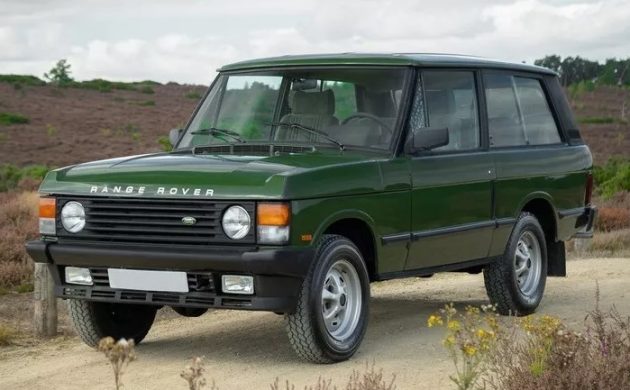
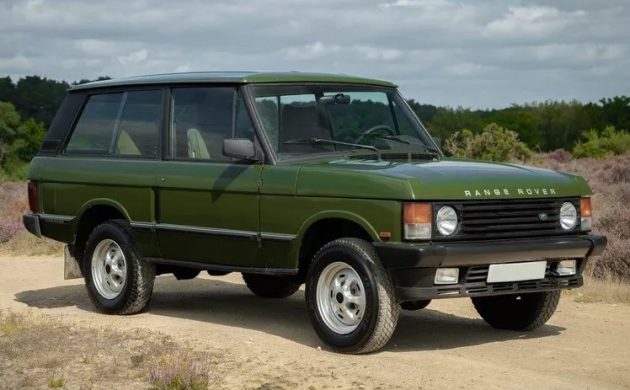
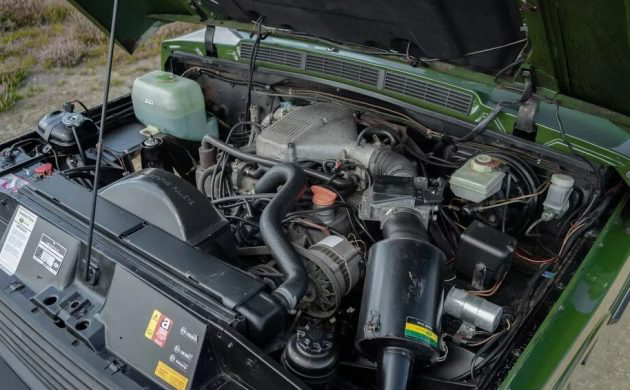
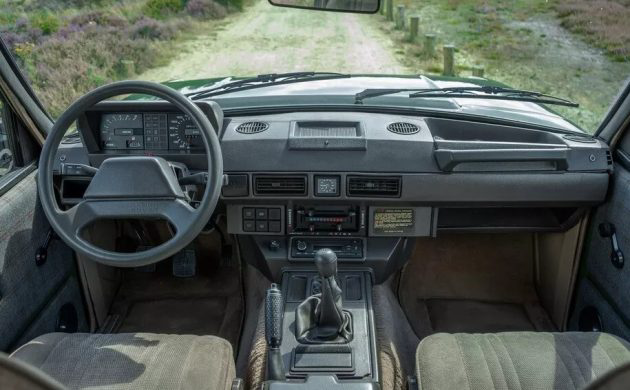
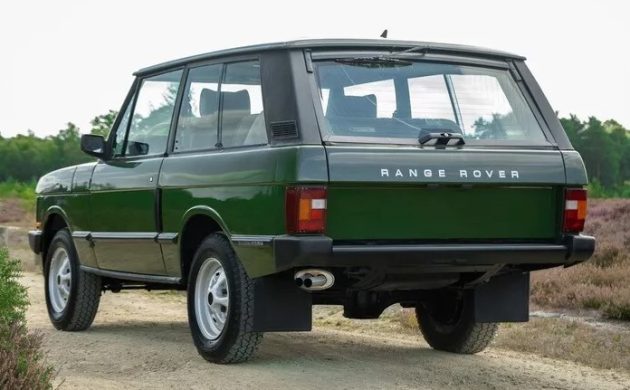





A true time capsule, you will never find one of this vintage this nice.
Nice. Never seen a manual version over here. Seems they prefer the proper 5sp versions in Europe. This one’s ready to haul the whole tribe up to the Alps🏔 ❄️ ⛷️
I maybe have seen only 1 2 door version in my life. Not sure if you had to special order that or what. The 4 door versions in the mid 1980s and 1990s were popular as the Mercedes G wagens are today to the yuppies and rich people .
The Series 1 Range Rover (the author’s term- I’ve never heard it) were, as described in the article, very utilitarian vehicles- rubber floor mats, no electronic equipment like sunroof, or leather seats, etc. They had two doors and a manual transmission. By the time I bought my 1992 Range Rover, they were loaded with luxury features, which in some cases, led to their reputation for unreliability. When everything was working correctly, it was the best vehicle that I have ever owned. It did everything really well (except pass British repair shops)- we used to joke about the “$500.00 oil change”- a typical visit cost. It saved my life, avoiding an accident due to its amazing ABS system. The older Rovers like this are referred to as “Classics”.
John – I had to read that twice myself, but he actually said/wrote, “Ser 1 LAND Rover,” which is of course the first of the rugged Series Landys. He then goes on to describe an old Series truck, then contrasts it to the Range Rover.
I’ve seen Range Rover of this vintage, but I’ve never seen one with manual shifting gearbox nor with only two side doors. All the Range Rovers I’ve seen had automatic gearbox and four doors. While I appreciate automatic gearbox, I would’ve preferred a turbo diesel engine.
That is a nice Range Rover. Left hand drive, manual transmission, low mileage. That would be a nice vehicle in my driveway.
The 2 door Range Rover fell out of favour in most markets when Rover introduced the 4 door model. However, some export markets (France, Spain, maybe Portugal) continued to sell the 2 door until 1994.
I would’ve thought that by 1989 this car would have the 3.9 EFI engine. Certainly, that was the case here in Spain, where most are also fitted with a 5 speed manual.
These vehicles are the best of the classic Range Rovers. They were top of the range, so often well- looked after, they received all the updates of the 4 door RR, and the 2 door body is way more elegant than the 4 door. In Spain, you’d have to pay €20000 or more for a good one of these, so this UK based car looks a bargain at present.
That 3.5 Liter Engine was the Oldsmobile/Buick 1962/1964 —215 Cubic Inch that they Bought from GM . When the gas shortage came in 1970 they wished the haven’t sold it .
I’d never bid on a vehicle of any kind that did not have a VIN available somewhere. I would have been interested to see the build date, which would likely explain the presence of the 3,5L.
Absolutely no gen-one/Classic Range Rover can be considered as “Turn key.” I had this exact truck in California for a decade or so. I was the second owner and sold it for what I paid for it. Fairly straightforward to maintain and repair. There was a lot of both. The engine was a Buick knockoff. Spare keys were made using General Motors blanks. FANTASTIC driving position. Even with the work, it was one of my favorite cars.